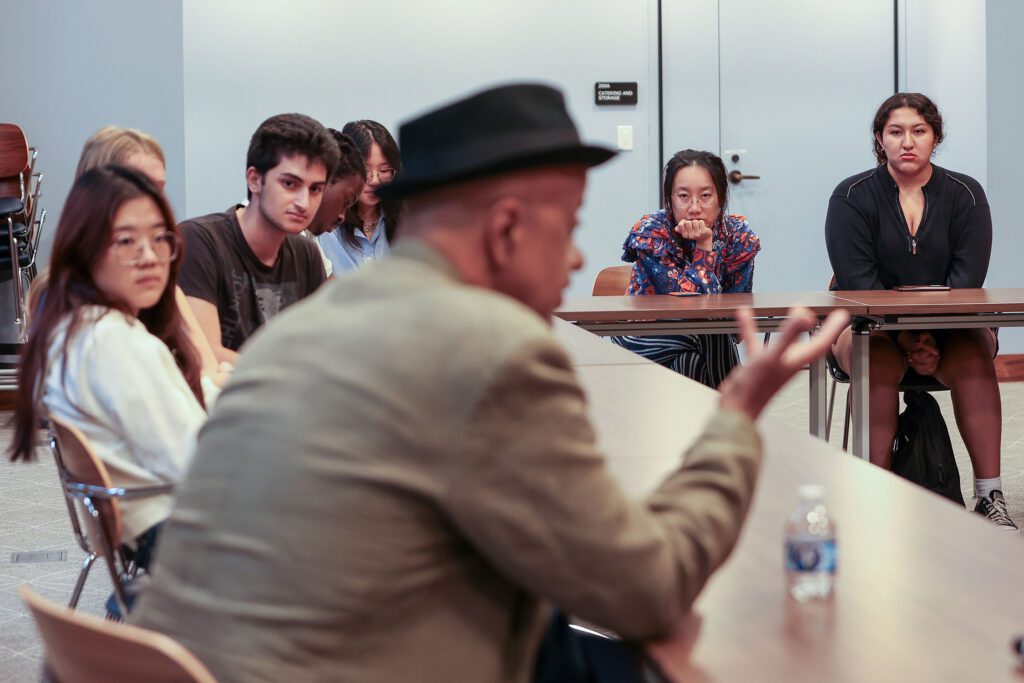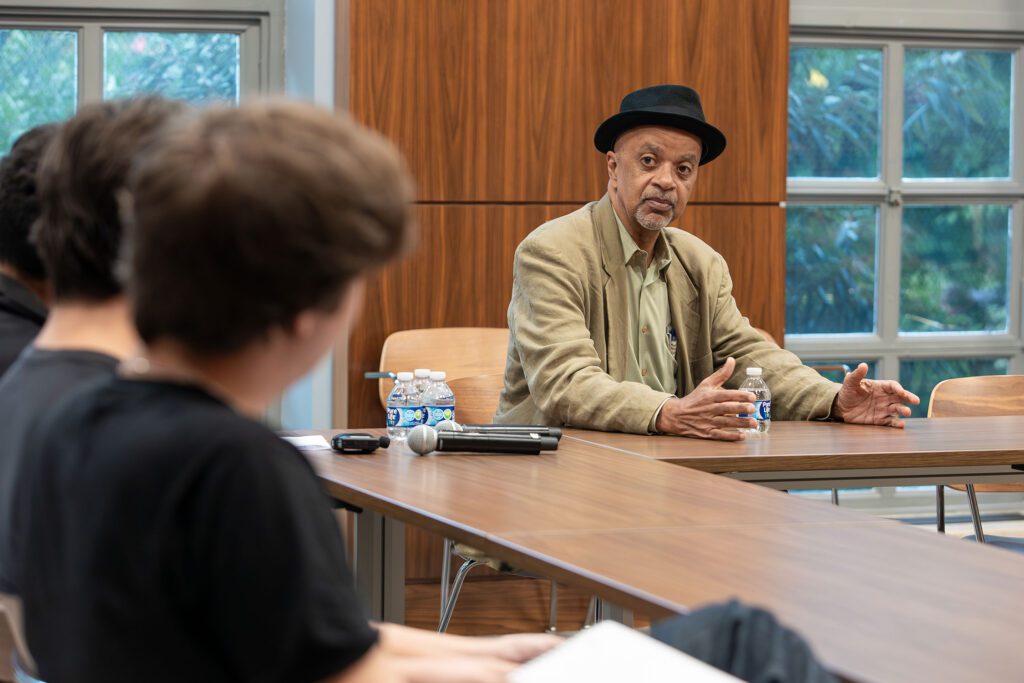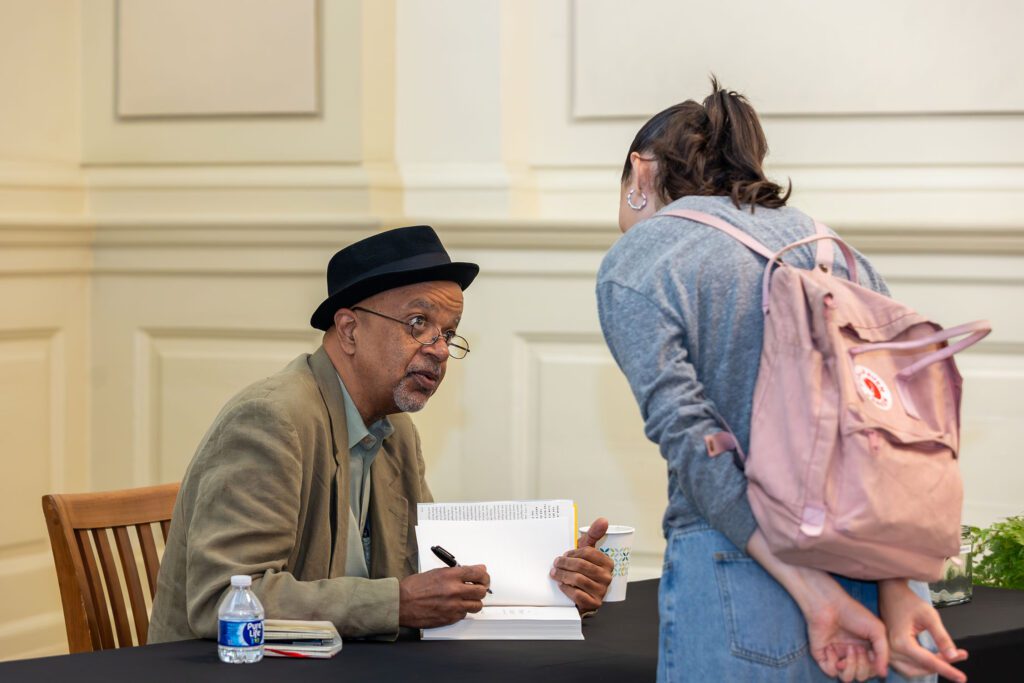Since bursting onto the book scene with 1996’s landmark memoir The Color of Water: A Black Man’s Tribute to His White Mother, James McBride has drafted a legacy of compelling narratives that infuse the challenging task of discussing race in America with humanity. One of eight siblings born to a Black father and a white Jewish mother in New York, his tales trace his own unique American identity and have catapulted him into rare literary celebrity status.
It’s no surprise then that McBride’s 2023 hit The Heaven & Earth Grocery Store, a vivid portrayal of the intersection of Black, Jewish, and immigrant communities in the Pottstown, Pennsylvania neighborhood once called Chicken Hill, was selected for this year’s Campus Read. Described by the New York Times as a “murder mystery locked inside a great American novel,” the book shows us that, even in dark times, love and community sustain us. Since its publication last August, The Heaven & Earth Grocery Store has scored prestigious accolades like the 2023 Kirkus Prize for Fiction and effusive, positive reviews.
Begun in 2022 as a joint venture of the Dean’s Office and the Office of the Provost, the Campus Read is a community-wide exploration of the roots and pervasiveness of structural racism in American society through the written word. This year, the Campus Read is also a key event for Meeting the Moment, a College-wide initiative that advances Haverford’s commitment to a campus of open dialogues by equipping the College community with the necessary tools and resources to contend with complex global issues, including the continuing tragedy in the Middle East and a turbulent U.S. election landscape.
McBride visited campus on Tuesday, Sept. 17, for a book signing and Q+A session moderated by Professor of English and Director of Creative Writing Asali Solomon. Throughout the hourlong talk in Marshall Auditorium, which followed an informal discussion with students and a book signing in Founders Hall, McBride, dressed in a trademark porkpie hat, answered questions about whether or not he thinks of himself as a historical writer — he doesn’t — his extensive research on Pottstown for the setting, and how he shifted from his role as a journalist to that of a best-selling fiction author.
“The nature of fiction is to find out what works and how your dreams can come true. Also, the nature of journalistic storytelling, at least when I was doing it, really never told the entire story,” he said. “That kind of writing couldn’t sustain me. It’s all cynicism. Cynicism is destructive to the creative process, and it’s destructive to a country.”
In closing, McBride touched on the themes of love and hope that course through his most recent release in response to a student’s question about what gives him hope and nourishment. Surprising most of the crowd, McBride told the audience that he has remained close friends with the Bush family despite their political differences. No matter their opposing viewpoints, which are often stark in comparison, he said, they’ve been able to continually engage with reason and discourse.
“We’re in this room as people because somebody loves somebody,” McBride told the audience. “Love is an unstoppable force. It’s the greatest weapon imaginable.”



